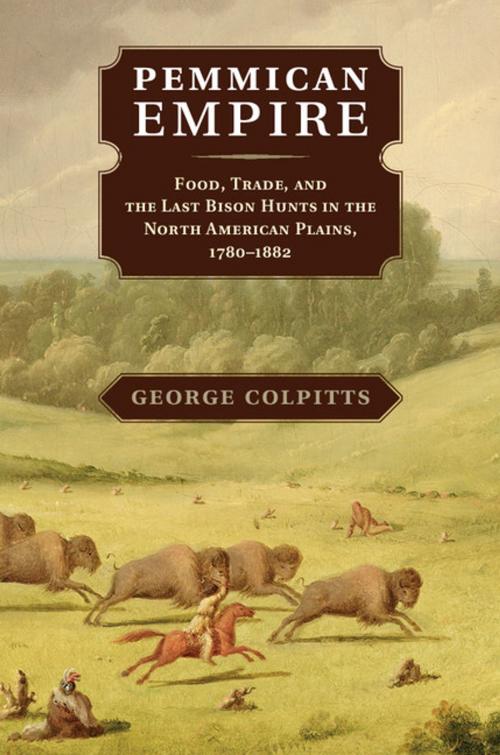Pemmican Empire
Food, Trade, and the Last Bison Hunts in the North American Plains, 1780–1882
Nonfiction, History, Americas, United States, Social & Cultural Studies, Social Science| Author: | George Colpitts | ISBN: | 9781316146934 |
| Publisher: | Cambridge University Press | Publication: | October 27, 2014 |
| Imprint: | Cambridge University Press | Language: | English |
| Author: | George Colpitts |
| ISBN: | 9781316146934 |
| Publisher: | Cambridge University Press |
| Publication: | October 27, 2014 |
| Imprint: | Cambridge University Press |
| Language: | English |
In the British territories of the North American Great Plains, food figured as a key trading commodity after 1780, when British and Canadian fur companies purchased ever-larger quantities of bison meats and fats (pemmican) from plains hunters to support their commercial expansion across the continent. Pemmican Empire traces the history of the unsustainable food-market hunt on the plains, which, once established, created distinctive trade relations between the newcomers and the native peoples. It resulted in the near annihilation of the Canadian bison herds north of the Missouri River. Drawing on fur company records and a broad range of Native American history accounts, Colpitts offers new perspectives on the market economy of the western prairie that was established during this time, one that created asymmetric power among traders and informed the bioregional history of the West where the North American bison became a food commodity hunted to nearly the last animal.
In the British territories of the North American Great Plains, food figured as a key trading commodity after 1780, when British and Canadian fur companies purchased ever-larger quantities of bison meats and fats (pemmican) from plains hunters to support their commercial expansion across the continent. Pemmican Empire traces the history of the unsustainable food-market hunt on the plains, which, once established, created distinctive trade relations between the newcomers and the native peoples. It resulted in the near annihilation of the Canadian bison herds north of the Missouri River. Drawing on fur company records and a broad range of Native American history accounts, Colpitts offers new perspectives on the market economy of the western prairie that was established during this time, one that created asymmetric power among traders and informed the bioregional history of the West where the North American bison became a food commodity hunted to nearly the last animal.















